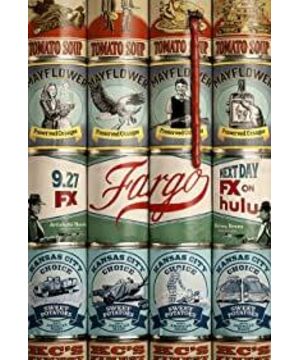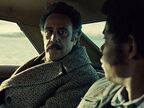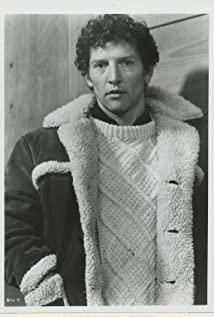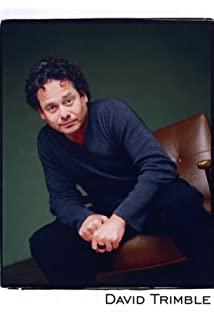Yesterday I finished watching the first season of "Fargo"-watching it the second time.
"Fargo" ("Ice Blood Storm") is a series of crime dramas whose screenwriter Noah Hawley was inspired by the film of the same name by Brother Coen and wrote the script. The Coen brothers were amazed by the excitement of his story and agreed that he named the show with the same name.
So far, "Fargo" has been filmed to the fourth season. Each season is a connected but independent crime story.
I especially enjoy watching "Fargo" on a freezing night. The reason is probably the same as watching a horror movie. Through fiction, we give ourselves a concrete image of what we fear. Watch it slaughter, and then defeat it.
In a safe environment, experiencing a threat, and returning after trembling, people will feel a sense of relaxation.
I think the inspiration for the "Fargo" series is twofold-partly from evil and partly from the ordinary.
All "Fargo" stories will contain the following factors: a calm town, cold weather, a kind of evil beyond imagination, a large-scale bloodshed, one or two mistakes being drawn into the whirlpool The little man, an ordinary and fearless policeman.
These constitute the unique sense of form of "Fargo". Take the first season as an example. The author first focused on portraying an ordinary but humane town.
A cowardly little man, Lester, tried hard and awkwardly to sell insurance, and was criticized by his wife as "not successful enough, we should work harder";
Molly, who just became a policeman, is full of energy every day. She was the father of a policeman, but she was full of warmth to persuade her to be an ordinary girl;
The old-school sheriff is also a gentle husband, patiently comforting his wife who has become neurotic because of her pregnancy every day;
Bill, the good old policeman, uses the police station as an office. He originally believed that the people in the town would not be criminals, and the biggest thing in the town was to fight against the coming bad weather;
Gus, the timid policeman, actually dreams of being a postman and living a normal life. When he and the killer Malvo first met by chance, he instinctively retreated.
Even those "bad guys" are just ordinary people with weaknesses. Hess, who loves to bully, Stavros, a nouveau riche who claims to be king, and a fitness coach who extorted him with the dream of opening a hammam... Think about it, their "badness" is just another manifestation of being mediocre. In front of the real "predators", they are just different prey.
This is different from what Malvo has, the kind of essential, pure evil.
The image of Malvo is probably one of the most successful killers in film history. The reason for his killing was not all money, nor hatred, or even an obsession with violence. His pleasure lies in playing with humans—the poor and fragile minds of those arrested.
He instigated the car wash boy to pee in his employer's fuel tank, and then called and told his employer that he would watch his own-directed play through the window like a reality show.
Before killing Hess, he deliberately came to look at him, as if admiring his bluffing cuteness.
He has always had the naive idea of "we should divide into four or six" for fitness coaches, and he has always laughed uncontrollably. Even before he was used to death, he had to tease him.
As for the supermarket king Stavros, he directed and performed the "God's Punishment" drama and asked him to obediently hand over the money. He has a more direct method, but he thinks it seems more interesting.
His contempt for the "predator" was most vividly manifested when Stavros' bodyguard was stupidly threatening. This old bodyguard, living on the honor of his high school years, was actually afraid of his job being taken away. Malvo was not angry or ignored, but shit directly in front of him, as if the other party did not exist.
So for a weak person like Lester, who is also at the bottom of the food chain in the ranks of "predators," he has no interest in "hunting", just like wolves don't chase mice.
Malvo helped him kill Hess, but he didn't actually fight the injustice for him. And to do so, as usual, fiddle with the suppressed evil thoughts in human hearts, and see what "interesting things" will happen later.
For him, it was as fun as a wolf training a rabbit to bite. So after Lester impulsively killed his wife, Malvo teased on the phone "Lester, are you being a bad boy?"
It is definitely not worth it for him to do this once, as the tapes collected are proof. But his accidental behavior unintentionally showed Lester how the "ruleless world" works.
Lester, a cowardly and poor man, was unexpectedly extraordinarily talented. His long-standing "bullying" image has become his most successful disguise.
Lester slammed into the cartoon poster posted in the basement and wiped out the past self with his blood. The slogan on the poster, "What if you are right, are they wrong?" seems to be Lester's self-deceitful words.
At this moment, the audience actually agrees with Lester from the bottom of their hearts. Because each of us is somewhat aggrieved at the world-why I have always been a good person, but rarely get rewards; and those bad guys who ignore the rules and do whatever they want can make more money and be more successful?
The world of "Dog eat dog" is actually recognized by a considerable number of people. So people would think of themselves more or less when they saw poor Lester.
We support Lester's "deterioration" and hope he escapes. We even hope that Lester will hit the wife who cuckold him and look down on him with a hammer.
However, this little mouse not only found that he could bite people, but also liked to eat meat. Lester became able to lie unscrupulously and take advantage of others, and he embarked on an open life.
At this time, our feelings for Lester turned into disgust again. Because he not only absorbed the evil enlightenment, but continued the mediocrity of life, seeming to completely degenerate into a despicable representative.
And he thought he could be a "predator" on the same level, so in Las Vegas, he insisted on saying hello to Malvo, seeming to want real recognition.
And when Malvo showed the true pure evil-unscrupulously killing the undercover target for half a year, and his newly married "wife", Lester realized that the beast in front of him could not be guessed by human common sense.
No matter how cunning a mouse is, it is a teacher, and a wolf is always a wolf. Lester fled again.
In Malvo's arbitrary hunting, no one can fight against it, whether it is the police, the gang or the FBI. It seems that every "hero" you can think of has failed.
Who would have thought that Malvo would end up at the hands of the timid former policeman Gus. Gus has always been seen as another cowardly little man, and Malvo has never regarded this weak as a threat.
In fact, this is the screenwriter who needs to give people an explanation. If completely inhuman and absolute evil appears, what will he be defeated?
The answer is that those people who are regarded as "predators" gather together for their families and show the courage to fight against the beasts-this point will be repeated in the following seasons.
At the end of the first season of the story, the old policeman Lou picked up a shotgun and guarded his granddaughter’s door; Molly obeyed her husband Gus’ advice and stopped taking risks alone; and Gus plucked up the courage to go deep into the beast’s lair, and finally gave Malvo the last one strike.
Malvo saw the wolf before he died, as if his soul had left his body early. While Gus was frightened, he told him that he had solved the mystery of "human eyes are good at recognizing predators".
He thoroughly understood that what he was facing was an inhuman, terrifying beast. But in order to protect his family, he did not hesitate to fight back.
This ending of "ordinary good people finally wins" gives people a powerful placebo. "Although it is the world of dogs biting dogs, it's really the best life for wives and children hot on the bed." Probably most viewers will think so after watching the solution.
Because we don't do this, ordinary us will not be able to live on the level of self-identification. This is the real "True Story".
View more about Fargo reviews










